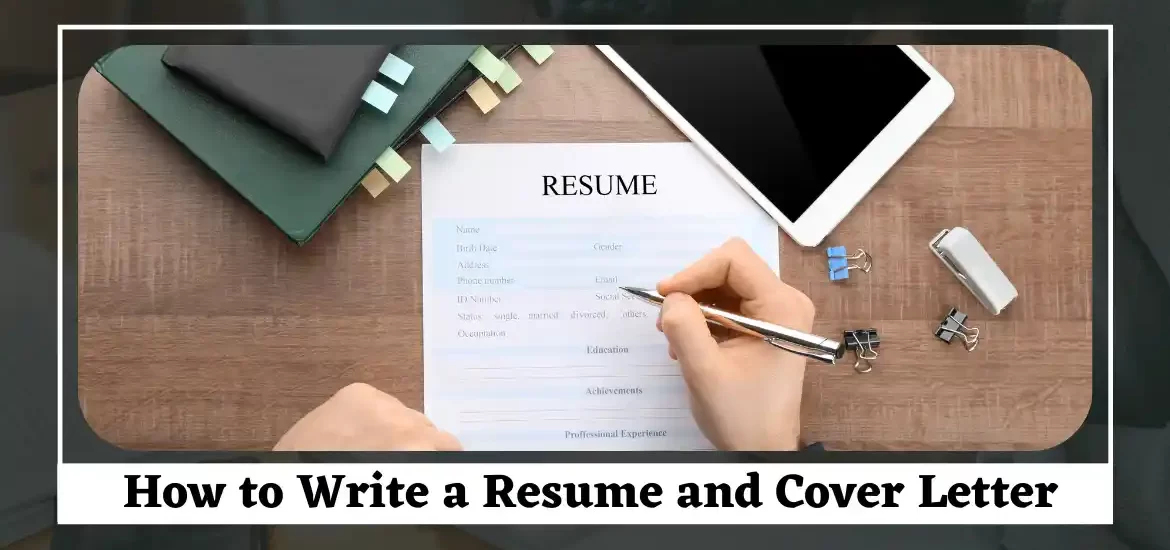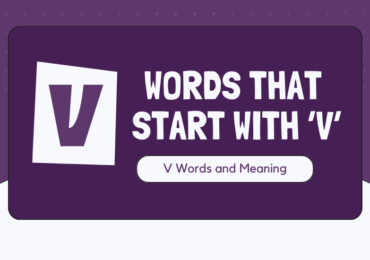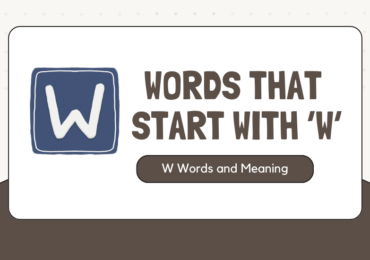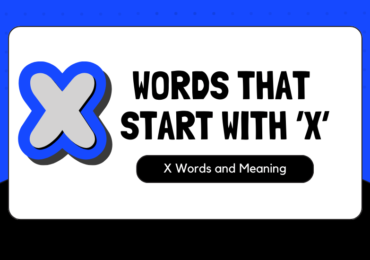Your resume and cover letter are two of the most important tools you have when applying for a job. They are your chance to introduce yourself to potential employers and convince them that you are the best candidate for the position.
What is a Resume : A resume is a document that summarizes your work experience, education, and skills. It is used to apply for jobs and to provide potential employers with an overview of your qualifications.
What is a Cover Letter : A cover letter is a letter that you send along with your resume to introduce yourself to potential employers and explain why you are interested in the job. It is also a chance to highlight your skills and experience and explain how you would be a good fit for the position.
Both a resume and cover letter are important because your resume and cover letter should highlight your skills and experience that are relevant to the job you are applying for. This will help potential employers see that you have the skills and experience they are looking for. Your cover letter should explain why you are interested in the job and why you would be a good fit for the position.
This will help potential employers see that you are motivated and enthusiastic about the opportunity. Your resume and cover letter should be well-written and error-free. This will help you make a good impression on potential employers and increase your chances of getting an interview. If you are looking for a job, it is important to take the time to write a well-written resume and cover letter. By following the tips above, you can write a resume and cover letter that will help you get hired.
Key Elements of a Resume
A well-written resume can help you get your foot in the door and land the job you want. But how do you write a resume that is both effective and informative? Here are the key elements of a resume
- Contact information: This includes your name, email address, phone number, and mailing address. It should be easy to find and should be consistent with the contact information you provide in your cover letter and other application materials.
- Summary: This is a brief paragraph that summarizes your skills and experience. It should be tailored to each job you apply for and should highlight the skills and experience that are most relevant to the job.
- Work experience: This is a list of your work experience, including the company name, your job title, the dates you worked there, and your responsibilities. For each job, be specific and quantify your accomplishments whenever possible. For example, instead of saying "Increased sales," say "Increased sales by 15%."
- Education: This is a list of your educational background, including the names of the schools you attended, the degrees you earned, and the dates you attended. If you have any relevant coursework or extracurricular activities, be sure to list them here.
- Skills: This is a list of your skills, both hard skills (such as proficiency in software programs) and soft skills (such as communication and teamwork). When listing your skills, be sure to use keywords that are relevant to the jobs you are applying for.
- Awards and honors: This is a list of any awards or honors you have received. This can be a great way to highlight your accomplishments and to show that you are a high-achiever.
- Projects: This is a list of any projects you have worked on, either at work or school. This can be a great way to showcase your skills and experience, and to show that you are capable of completing projects successfully.
- References: This is a list of three references who can speak to your skills and abilities. When choosing your references, be sure to select people who know you well and who can provide positive and relevant feedback about your work.
Key Elements of a Cover Letter
A well-written cover letter can help you stand out from the competition and increase your chances of getting an interview. But how do you write a cover letter that is both effective and persuasive? Here are the key elements of a cover letter.
- Salutation of cover letter : Address the cover letter to the hiring manager by name, if possible. If you cannot find the hiring manager's name, address the letter to "Dear Hiring Manager."
- Introduction of cover letter: In the introduction, state the position you are applying for and how you heard about it. You can also briefly introduce yourself and explain why you are interested in the company.
- Body of cover letter: In the body of the letter, highlight your skills and experience that are most relevant to the position. Be specific and quantify your accomplishments whenever possible. You can also discuss your goals and why you would be a good fit for the company.
- Closing of cover letter: In the closing, thank the hiring manager for their time and consideration.
Express your interest in learning more about the position and the company. When writing your cover letter, it is important to use clear and concise language. Avoid using jargon or acronyms that the reader may not understand. It is also important to tailor your cover letter to each job you apply for. This means highlighting the skills and experience that are most relevant to the specific job. Finally, be sure to proofread your cover letter carefully before submitting it. Typos and grammatical errors will make you look unprofessional.
Tips for resume writing
By following these tips, you can write a descriptive resume that will help you stand out from the competition and land the job you want.
- Start with a strong summary statement. This is a brief paragraph that summarizes your skills and experience. It should be tailored to each job you apply for. The summary statement should be clear, concise, and attention-grabbing. It should highlight your most relevant skills and experience, and it should make the reader want to learn more about you.
- Use keywords throughout your resume. This will help your resume get noticed by applicant tracking systems (ATS). ATS are computer programs that scan resumes for keywords that are relevant to the job you are applying for. When you use keywords throughout your resume, you increase your chances of having your resume seen by a human recruiter.
- Quantify your accomplishments whenever possible. This will make your resume more impressive. Instead of saying "Increased sales," say "Increased sales by 15%."
- Use action verbs to describe your skills and experience. This will make your resume more dynamic and engaging. Instead of saying "I was responsible for," say "I managed."
Use a consistent format and font throughout your resume. This will make your resume look professional and polished. - Proofread your resume carefully before submitting it. Typos and grammatical errors will make you look unprofessional.
- Tailor your resume to each job you apply for. This means highlighting the skills and experience that are most relevant to the specific job.
- Keep your resume to one or two pages long. This is the ideal length for a resume.
- Avoid using too much text or too many different fonts.
- Ask a friend, family member, or career counselor to review your resume and give you feedback.
Tips for cover letter writing
By following these tips, you can write a cover letter that will help you stand out from the competition and land the job you want.
- Address the cover letter to the hiring manager by name, if possible. If you do not know the hiring manager's name, you can use "Dear Hiring Manager" or "To Whom It May Concern."
- Start with a strong introduction that highlights your skills and experience. This is your chance to make a good first impression and get the hiring manager's attention.
- Tailor your cover letter to the specific job you are applying for. This means highlighting the skills and experience that are most relevant to the position.
- Quantify your accomplishments whenever possible. This will make your cover letter more impressive. Instead of saying "Increased sales," say "Increased sales by 15%."
- Use action verbs to describe your skills and experience. This will make your cover letter more dynamic and engaging. Instead of saying "I was responsible for," say "I managed."
- Proofread your cover letter carefully before submitting it. Typos and grammatical errors will make you look unprofessional.
- Keep your cover letter to one or two pages long.
- Use keywords throughout your cover letter. This will help your cover letter get noticed by applicant tracking systems (ATS).
- Be specific and provide examples to illustrate your skills and experience.
- Be enthusiastic and show your excitement for the position.
- Proofread your cover letter carefully for any errors.
Example of a job resume
Jane Doe
123 Main Street
Anytown, CA 12345
(123) 456-7890
jane.doe@email.com
Summary
Skilled and experienced software engineer with a passion for developing innovative solutions. Proven ability to lead and manage projects, mentor junior engineers, and deliver high-quality results on time and within budget.
Work Experience
Software Engineer
Acme Corporation
Anytown, CA
2021 - Present
- Developed and maintained software applications for a variety of clients
- Led a team of engineers in the development of a new software product
- Successfully delivered multiple projects on time and within budget
Software Engineer Intern
XYZ Company
Anytown, CA
2020
- Developed and tested software applications
- Worked with a team of engineers to improve the performance of a software product
Education
Master of Science in Computer Science
Stanford University
Stanford, CA
2021
Bachelor of Science in Computer Science
University of California, Berkeley
Berkeley, CA
2019
Skills
- Programming Languages: Java, Python, C++
- Software Development Tools: Eclipse, Visual Studio, Git
- Agile Methodologies: Scrum, Kanban
- Cloud Computing: AWS, Azure, Google Cloud Platform
- Data Science: Machine Learning, Natural Language Processing
Awards and Honors
Dean's List, Stanford University
President's List, University of California, Berkeley
Google Anita Borg Memorial Scholarship
Projects
- Developed a new software application that improved the efficiency of the company's customer service department
- Led a team of engineers in the development of a new machine learning model that was able to predict customer churn with 90% accuracy
References
Available upon request.
This is just an example, and you will need to tailor your resume to your specific skills and experience. By following the tips above, you can write a resume that will help you get hired.
Example of a job cover letter
[Your Name]
[Your Address]
[Your Phone Number]
[Your Email]
[Date]
[Hiring Manager Name]
[Title]
[Company Name]
[Company Address]
Dear [Hiring Manager Name],
I am writing to express my interest in the Software Engineer position that I saw advertised on [website]. I have been working as a Software Engineer for the past three years, and I have a strong background in developing and maintaining software applications.
In my previous role at [Company Name], I was responsible for developing and maintaining a variety of software applications. I also worked on a team of engineers to develop a new software product. I am proficient in a variety of programming languages, including Java, Python, and C++. I am also familiar with a variety of software development tools, such as Eclipse, Visual Studio, and Git.
I am a highly motivated and results-oriented individual. I am also a team player and I am always willing to go the extra mile. I am confident that I have the skills and experience that you are looking for in a Software Engineer.
I am eager to learn more about the Software Engineer position at [Company Name]. I am available for an interview at your earliest convenience. Thank you for your time and consideration.
Sincerely,
[Your Name]
This is just an example, and you will need to tailor your cover letter to the specific job you are applying for. By following the tips above, you can write a cover letter that will help you get hired.








